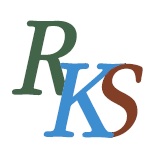 ISSN : 1229-0076
ISSN : 1229-0076
“The Transmission of the Canon is Difficult”: The Problematic Formation of the Confucian Way in Korea
Abstract
This paper narrates the origin of the “Transmission of the Way” (dotong) in Korea and the emergence of scholarly lineages. It connects this with the particular socio-political constellation of Joseon society according to which social standing determined participation in the political world. For this reason, Korean dohak was always more political than in China. Following the death of Toegye Yi Hwang and Yulgok Yi I, the Way bifurcated, and its application to the intellectual discourse and political reality depended much on those in power. This was equally true for the selection of scholarly candidates for the honor of enshrinement in the Shrine of Confucius (Munmyo). What emerged as “orthodoxy” aroused dissent that was suppressed by the state. Toward the end of the dynasty, the scholarly atmosphere became more fluid, and personal interpretations of the Classics began to emerge.
- keywords
- neo-Confucianism, “Transmission of the Way” (dotong), Shrine of Confucius (Munmyo), molders of Korean dohak, factional conflicts, dissenters of the Way
- 다운로드 수
- 조회수
- 0KCI 피인용수
- 0WOS 피인용수

